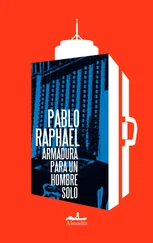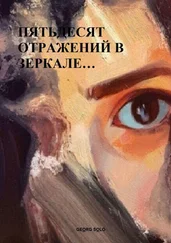‘Those boys from school died of cholera. It could have been us. Many things could happen. We could fall out of a window.’
It took some time for Boris to add,
‘We could be hit by a motor car.’
A big accident had happened the previous week in Sofia, when a speeding motor car had ploughed into a market and killed three people, and for a time no one could talk of anything else. The two boys sat in silence, imagining their tragic death under a gleaming motor car — and the thought was unutterably glamorous.
They talked on so long that they could no longer see each other’s faces. It was secret and wonderful to be in the laboratory at that forbidden time, trying to find words together in the darkness. Ulrich felt as if the blinds had been raised on the world, for when you sat with another human being and launched out into new thoughts, there could be no end to it.
Boris introduced Ulrich to the fool, Misha, who was sometimes found at the tea stall near his house. Misha wore rags and sang them strange rhymes that he made up himself. There were stories about Misha: that he was actually a Turk who had committed a terrible crime, that he had once owned a famous perfumery where princesses and dignitaries went to shop. He had a way of imitating a machine, and asked people to pull his crooked forearm to turn on the motion, which sent his body juddering violently until Ulrich and Boris exploded with laughter. He always seemed to have marbles for them in his pocket which he reached for conspiratorially and pushed into their hands, two for each, saying,
Keep them on a slope
And you’ll lose your hope!
Ulrich’s mother did not like him talking to Misha. She tolerated it until Ulrich told her that they had seen the fool tying the tails of two dogs together. The dogs could go neither forward nor back, and barked in bewilderment, the bigger one dragging the smaller one behind, while Misha warmed his hands on his fire and laughed at the startled animals until the tears cut channels in the dust of his face. Boris protested the cruelty, and cut the animals apart, but it was enough for Elizaveta to forbid Ulrich ever to talk to Misha again.
On their voyages abroad, Ulrich’s mother had always carried magnesium wire for lighting up the interiors of caves and ancient buildings. Her reserves now lay uselessly in a drawer in her study, and Ulrich would sometimes cut off a length with scissors to light up for his own amusement. He loved the white brilliance that left a black hole in his vision when he looked away, and the smoke that ribboned coolly from the ardour.
In the decades since then, Ulrich has tried to see his emerging interest in chemistry as the revisitation of his entombed love for music. It has struck him that the two have this thing in common: that an infinite range of expression can be generated from a finite number of elements. But this was not apparent to the boy who now began to quiz his friend’s father on the nature of molecules and the meaning of alkalinity. Boris’s father often answered these questions with an invitation to his laboratory, where substances were made to do startling things out of their obedience to laws. He decanted some copper sulphate solution into a small bottle for Ulrich to take home and grow blue crystals from, and he showed how you could plate steel with copper by putting electrodes in sulphuric acid. He told Ulrich affecting stories of Ernest Rutherford and Marie Curie, who had peered into the mists of the atom.
Those years all merge together in Ulrich’s mind, so he cannot remember the sequence of events. But it was certainly while they were still living in the house on Dondukov Boulevard, and while his father was still away in the army, that he first set up his chemistry laboratory.
The feeling of that laboratory still comes back to Ulrich sometimes, in the moments before sleep, when the mind is unmoored. The wooden door, rotting at its bottom, could be locked from the inside. There was a large barrel in the corner which he kept filled with water for his experiments, and a table where his beakers and retorts were lined up. At that age he read biographies of inventors, and these books were collected here, as well as the adventures of Sherlock Holmes, who was a chemist and violinist as well as a detective.
The teenager who laboured there believed he would chance upon something that would change the world for ever. Ulrich had read The Time Machine by the Englishman, Wells, and many other such books, and he loved the descriptions in these stories of the rickety domestic workshops in which eccentric inventors tinkered uncertainly towards earth-shattering ideas. And though he knew little of the scientific breakthroughs that were then taking place in other parts of the world, his immature trials were not without success. His investigations of the chemical properties of discarded animal bones resulted in a powerful glue that his mother adopted, with no apparent dissatisfaction, as her sealant for letters. There was every reason to hope that in his dim shed he would one day have one of those historic moments of realisation that was the high point of all his scientists’ biographies.
When Ulrich’s classmates came to visit his laboratory, he would set up the right atmosphere by dripping sulphuric acid continually on to chalk so it bubbled and steamed. This simple magic was guaranteed to impress, and he kept his laboratory in a constant chemical haze until one winter’s day, with the windows closed, he fainted from the carbon dioxide and was discovered only just short of asphyxiation by his horrified mother. Boris was delighted when he heard the story, for Ulrich’s gimmick had always seemed ridiculous to him.
When Ulrich’s father arrived home from the war, his left trouser leg was rolled up and empty, and his ears were damaged by the shells. Ulrich watched with disbelief as his father was installed in the house like an incapable infant.
Elizaveta cleared out a disused room whose view of the garden recommended it for convalescence, and she arranged it with flower vases and ornaments. Though the family’s finances were approaching a crisis — for the war had destroyed the economy, and her husband had been away for years — she made new purchases to diminish the impact of his injuries: a wheelchair from England, for instance, and an armchair with a folding table, where she encouraged him to read and write. But these acquisitions failed to penetrate the blankness into which her husband had retreated, and all her most inspiring speeches extracted little more from him than complaints and accusations.
Ulrich knew he ought to feel pity for his father, but this emotion refused to come. In fact he found it hard not to blame him for having returned so unlike himself, and over time he began to punish him in countless insidious ways.
On one occasion, Boris came to dine with Ulrich’s family. By that time it had become clear that Boris’s musical talent was exceptional: he had been taken on at the Bulgarian State Music Academy by a famous teacher from Moravia, and had already given a number of well-received recitals around the city. As dinner was served, Ulrich chattered proudly about Boris’s musical accomplishments, shouting for the benefit of his father, who sat at the head of the table with the morose air he kept in those days. Ulrich said,
‘Boris is going to play the Mendelssohn concerto next week in the national theatre. His teacher has told him to give up everything else and to devote his life to the violin!’
His father did not look up, but bellowed deafly,
‘No more of this talk! What are your parents thinking of? You’ll fall in among criminals!’
Boris wrestled with confusion, but Ulrich looked triumphantly at him and smiled in happy complicity. In plotting this conversation, he had reasoned that what linked siblings was their sharing of the most irrational aspects of their parents’ characters; and, having exposed Boris to his father’s insanity, he could now truly consider him a brother.
Читать дальше
Конец ознакомительного отрывка
Купить книгу












